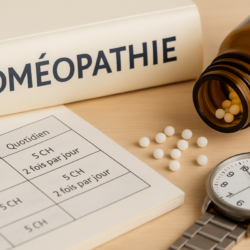Winter brings with it its share of aches and pains. Colds, flu, sore throats, coughs, sinusitis, etc. are all health concerns that affect us every year. However, there are natural remedies to relieve them and prevent their onset. As an online pharmacy, we are aware that people are increasingly looking for natural solutions for their health. That’s why we’ve put together a few tips and tricks to help you cure winter aches and pains naturally.
First of all, it’s important to stress the importance of personal hygiene. Washing your hands regularly, avoiding touching your face, covering your mouth and nose when coughing or sneezing, etc. are simple but effective measures to prevent the spread of viruses and bacteria.
You can also boost your immune system with a healthy, balanced diet. Foods rich in vitamin C, such as citrus fruit, kiwi fruit, red peppers and spinach, are particularly recommended. It’s also important to drink enough water to keep hydrated.
Finally, if you have a sore throat or cough, natural remedies such as honey, thyme,eucalyptus or ginger can be very effective. Inhalations based on plants or essential oils can also help to clear the respiratory tract.
In short, winter aches and pains can be cured naturally. By taking care of your personal hygiene, eating a healthy diet and using natural remedies, you can boost your immune system and protect yourself against winter infections. Don’t hesitate to visit our online pharmacy to find natural products that are effective for your health.
Common winter ailments
Winter brings with it its share of health challenges, particularly because of the drop in temperatures and the increased spread of viruses. Among the most common ailments are colds and flu, sore throats, sinus infections and joint pain. Each of these conditions can have a significant impact on people’s daily lives during the cold months.
Colds and flu
Colds and flu are undoubtedly the most common ailments in winter. A cold often manifests itself as a runny nose, sneezing, nasal congestion and sometimes a slight fever. Flu, on the other hand, is more severe and can cause high fever, muscle aches, headaches and extreme tiredness. These respiratory viruses spread easily, especially in closed environments where people are more likely to stay indoors.
Sore throats
Sore throats can be both painful and irritating, with a burning or stinging sensation that makes swallowing difficult. They are often the result of viral infections such as the common cold, but can also be caused by bacteria, as in the case of strep throat. Dry winter air resulting from indoor heating can also aggravate this condition.
Sinus infections
Sinus infections are another frequent complication in winter, characterised by congestion, pressure in the face, and sometimes headaches and fever. These infections occur when the sinuses become blocked and infected by viruses or bacteria. Cold, dry weather can contribute to sinus irritation and inflammation.
Joint pain
Finally, joint pain is particularly prevalent during the cold months. The cold can make joints stiffer and more painful, especially for those suffering from arthritis or other chronic inflammatory conditions. Changes in barometric pressure can also influence the severity of symptoms experienced by those affected.
These winter ailments, although common, can be effectively managed with appropriate treatments, including homeopathy, which offers a gentle and natural approach to relieving these discomforts. By understanding the symptoms and choosing the right remedies, it is possible to reduce the impact of these seasonal illnesses and maintain a good quality of life even during the coldest months.
Effective in curing flu
Flu can manifest itself in many ways and to varying degrees. It can range from a simple runny nose to fever and prostration. Each manifestation is treated with different medicines.
Take Allium Cepa 5 CH if you have a runny nose, and Bryonia Alba 9 CH if you have a fever and are very thirsty. If you feel very tired, achy or have bone pain, opt for Nux Vomica 9 CH instead.
If, on the other hand, you are not thirsty but feel cold or shiver, choose Gelsemium sempervirens 15 CH.
To avoid all this, you can opt for a preventive treatment lasting 1 to 2 months with Influenzinum 9 CH and/or Yersin serum 9 CH.
Advantages of homeopathy for winter ailments
Homeopathy offers a number of significant advantages for the treatment of winter ailments, which go far beyond the simple management of symptoms. Here are some of the main benefits of this therapeutic method:
Natural and safe approach
One of the greatest advantages of homeopathy is its safety. Unlike traditional medicines, homeopathic remedies are made from diluted natural substances, which means that there is generally no risk of toxicity or serious side effects. This feature makes homeopathy particularly attractive to people looking for alternatives to conventional medicines, which are often accompanied by undesirable side effects.
Personalised treatment
Homeopathy is well known for its individualised approach to treatment. An experienced homeopath will assess not only the physical symptoms but also the patient’s emotional and psychological state to select a remedy that precisely matches their unique profile. This holistic method can improve the effectiveness of treatment by more accurately targeting the underlying causes of symptoms, rather than simply masking them.
Preventing relapses
By stimulating the immune system and strengthening the body’s natural defence mechanisms, homeopathy can help reduce the frequency and severity of winter ailments. Many homeopathic users report fewer episodes of colds and flu over time, suggesting a long-term preventive effect of homeopathic treatments.
Accessibility and ease of use
Homeopathic remedies are available in most pharmacies and health food shops, making them easily accessible to those who wish to try them. What’s more, these remedies are simple to administer, often in the form of small granules that dissolve easily under the tongue, making treatment practical even for children and the elderly.
Cost-effectiveness
Compared with conventional medical treatments, homeopathy can be a more cost-effective option, particularly for people without medical insurance or those looking to minimise their healthcare costs. Homeopathic remedies tend to be less expensive than prescription drugs and can help reduce overall healthcare costs.
In conclusion, homeopathy offers a promising alternative for those seeking natural management of winter ailments. Thanks to its personalised, safe approach, which respects the body’s overall balance, it represents an attractive treatment option for a growing number of people concerned about their health and well-being during the winter months.
To treat muscle and joint pain
Doctors generally prescribe Rhus Toxicodendron or Bryonia Alba for joint pain, the most common of which is rheumatism. It can be used for both acute and chronic cases.
It can also be applied topically to relieve muscle and joint pain. You can choose between Calendula, Hamamelis, Arnica or Belladona. Their effectiveness has been proven and they are very well tolerated by all skin types.
Recommended for toothache
Toothache is an unbearable pain, especially when you’ve tried everything but can’t seem to soothe it. The good news is that homeopathy can provide relief!
Chamomilla Vulgaris for acute pain
When dental pain is particularly intense and seems to make you irritable, especially in young children, Chamomilla Vulgaris 5 CH is often recommended. This homeopathic remedy is renowned for its effectiveness in calming unbearable pain and the agitated behaviour it provokes. It is advisable to take this remedy whenever pain occurs, spacing out doses by at least 15 minutes, to effectively manage the pain.
Mercurius Solubilis for infections
Mercurius Solubilis 9 CH can be of great help in cases of pain caused by advanced decay or a dental abscess. This remedy is particularly indicated for pain that worsens at night and is accompanied by excessive salivation or bad breath. It helps to reduce inflammation and manage the pain associated with dental infections.
Dental check-ups: a must
Although these homeopathic remedies may offer temporary relief, they are no substitute for a professional consultation. It is crucial to consult a dentist as soon as possible to diagnose the underlying cause of the pain and receive appropriate treatment. Ignoring symptoms or delaying treatment can lead to serious complications, including loss of the affected tooth or more serious infections.
Responsible use of homeopathy
It is important to stress that homeopathy, although useful for managing dental pain, must be used responsibly. Following recommended dosages and carefully observing reactions are essential for effective treatment. In addition, homeopathy can be used to complement conventional care, offering an integrated approach to managing dental pain.
Toxicity of homeopathic treatments
The medicines are not toxic in any way, since dilution is the basic principle. The parent substances are attenuated many times until an infinitely low dose is obtained.
The resulting solution is both effective in treating pain and symptoms and free of toxicity, so that it is harmless to the body. This is why homeopaths recommend only using remedies sold in pharmacies.
These products have undergone a series of checks before being put on sale to the general public. The development of these medicines is more than complex, which is why only professionals are authorised to develop them. Only remedies that have been tested and developed in accordance with Hahnemannian law are truly free from toxicity.





